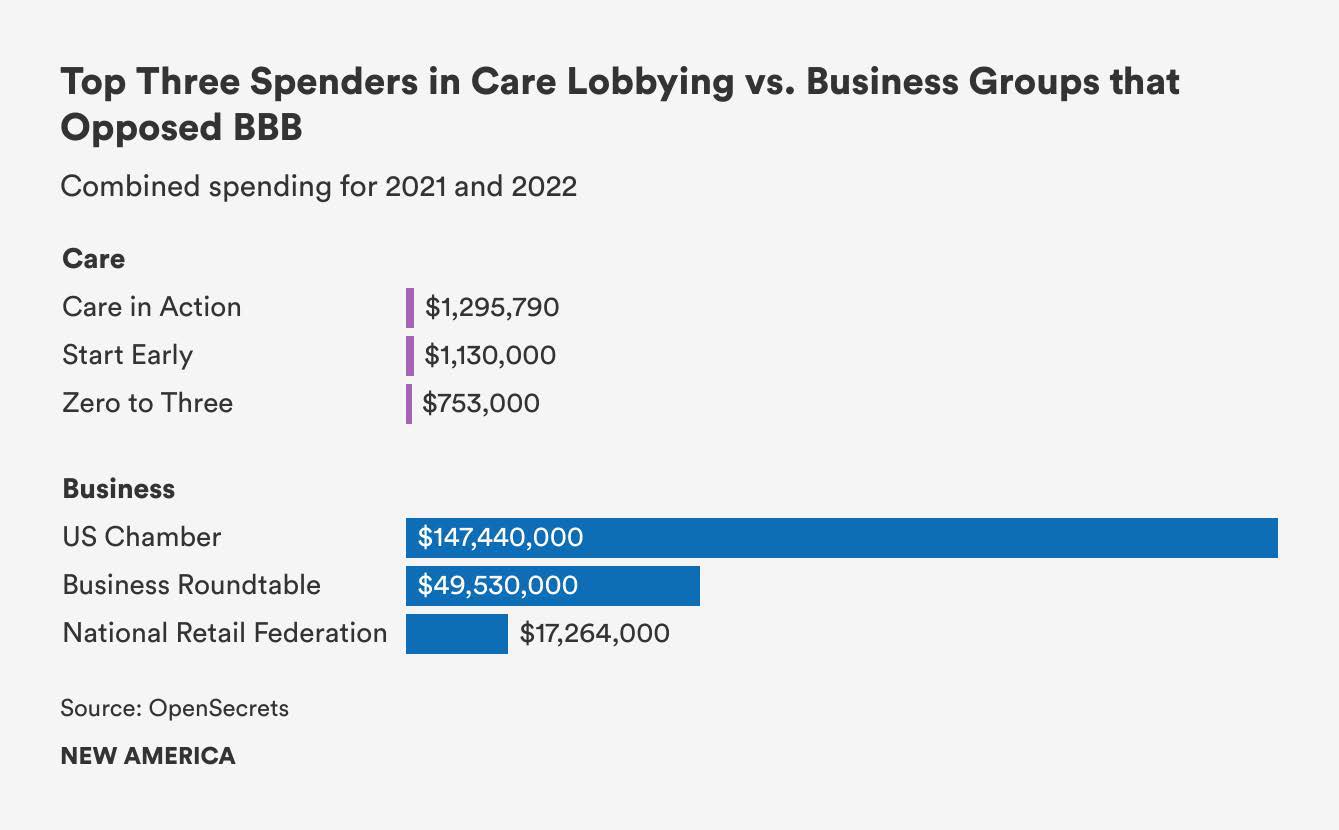While we’re taking Early Learning Nation Studio on the road less often during the pandemic, we’re offering recaps—Top Takeaways—from important conversations, town halls, webinars and virtual events from the Early Learning field. Visit our Early Learning Nation channel on YouTube for interviews with leaders from education, child development, business, politics and more.
New America’s Better Life Lab held a webinar on October 24 to mark the release of Katherine Goldstein’s Playbook to Transform How America Cares. Subtitled “The Care Movement’s Winning Tactics, Lessons and Case Studies from the Pandemic Era and Beyond,” the playbook focuses on what Goldstein called “proven, real-world solutions, not just policy ideas” for improving the way America supports young children, as well as seniors and others in need of care.
👉 Playbook to Transform How America Cares: Key Findings
Participants detailed how the care landscape has shifted since the pandemic and how leaders—elected and otherwise—have built momentum toward more equitable systems. Here are our takeaways.
1. Covid revealed painful truths. In her introductory remarks, Better Life Lab director Brigid Schulte said, “Covid made the care crisis impossible to ignore.”
In a recorded statement, Ai-jen Poo, president of the National Domestic Workers Alliance, observed, “So much has changed in our cultural conversation about care,” adding that realization has dawned that “the care workforce makes everything else possible in our economy.”
The epigraph of Goldstein’s playbook comes from novelist Arundhati Roy’s “The Pandemic Is a Portal”: “Historically, pandemics have forced humans to break with the past and imagine their world anew. This one is no different.” And while the hoped-for transformation has been far from immediate, the ways that societal inequities were exposed raised awareness and laid the groundwork for change.
👉 Now Is the Time for Transforming Our Undervalued and Largely Unseen Care Workforce
2. Care workers are organizing. Webinar participant Sandy Moreno left a promising job in Chicago to care for her grandmother in California. The grueling hours and absence of supports exhausted her physically and emotionally. “This is not just my story,” she said. “It’s thousands of other caregivers, too.”
As part of United Domestic Workers of America, she fought for and won statewide collective bargaining to boost Medicare reimbursement rates. Goldstein quotes AFI-CIO president Liz Shuler calling care worker bargaining “the ultimate example of creativity and innovation” and highlights Washington State’s giving homecare workers a starting wage of $21 per hour—with benefits—among other union-led victories.
As Moreno said, “When we get together, we can actually win big things.”
👉 Fifteen Minutes of Feminism: Majority Rule #3, Our Work is Valued (Ms. Magazine)
3. Ballot initiatives are having impact. Did you know that more than 60% of voters in Escambia County, Fla., approved a children’s service trust in 2020? Goldstein’s recent Time Magazine essay highlights this and over 50 local funds, worth about $1.5 billion altogether, passed by voters. These measures, she notes, are popular in red and blue states alike. (Children’s Funding Project tracks Voter-Approved Children’s Funds.)
Among the most significant ballot initiatives happened in New Orleans, which unlocked $40 million per year for 2,000 young children. Rochelle Wilcox of For Providers By Providers pointed out that a previous ballot initiative failed, but tactics such as engaging the business community and holding an advocacy boot camp for parents turned the tide. She ended her comments with a quote from Alice Walker: “The most common way people give up their power is by thinking they don’t have any.”
4. The movement is using all the tools available. Advocates, activists and voters can all play a part in improving the care infrastructure. Julia Craven, senior writer and editor at New America, reminded viewers that the state and local breakthroughs chronicled in Goldstein’s report took years of groundwork.
Minister JaNaé Bates, director of communications, The Isaiah Project, chronicled how a coalition won statewide Paid Family Medical Leave after 10 years of struggle. “We could have passed a weak, gutted policy five years ago,” she stated, “but the current version, with 12 weeks family and 12 weeks medical leave and strong job protections was worth the wait.”
Taking part in the public dialogue on care requires patience, persistence and, often, investment in narrative change and advocacy. Goldstein cites Open Secrets data to show that the top three care-oriented groups spent only 1.4% on lobbying compared to the top three major business groups who opposed the care-related measures in Build Back Better.
5. “The playbook is only the beginning.” Schulte promised. Kristin Rowe-Finkbeiner, cofounder and CEO of Moms Rising, predicted that federal progress is a matter of “not if but when,” thanks to an estimated 76 million “mom voters.”
While Craven noted, “Faith and movement work have always been deeply intertwined,” Minister Bates cautioned, “The opposition weaponizes faith against our collective future.” She recommended staying embedded in community and in touch with real people, and she brought this point home with a story about how a Black mom’s testimony about her family’s struggles left a lobbyist from the Chamber of Commerce at a loss for words.
Rowe-Finkbeiner declared, “Future generations will have things better.”
👉 Subscribe to Goldstein’s newsletter, The Double Shift

Mark Swartz
Mark Swartz writes about efforts to improve early care and education as well as developments in the U.S. care economy. He lives in Maryland.




